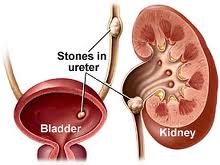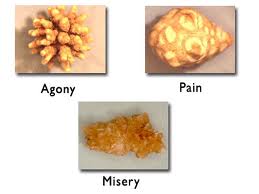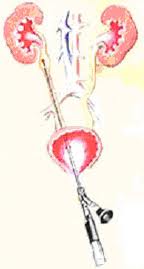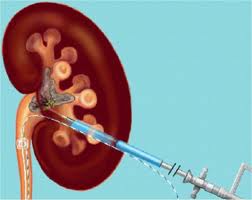Non-Surgical Treatment for Urinary Stones in India
Kidney stones (renal lithiasis) are small, hard deposits that form inside your kidneys. The stones are made of mineral and acid salts. Kidney stones have many causes and can affect any part of your urinary tract — from your kidneys to your bladder. Often, stones form when the urine becomes concentrated, allowing minerals to crystallize and stick together.

A lodged stone can block the flow of urine and build a backpressure in the affected ureter and kidney. Increased pressure results in stretching and spasm causing severe pain.
Types of Kidney Stones

• Calcium Stones are most common. Calcium can combine with other substances, such as oxalate (the most common substance), phosphate, or carbonate, to form the stone. Oxalate is present in certain foods such as spinach. It’s also found in vitamin C supplements. Diseases of the small intestine increase your risk of these stones.
• Cystine Stones consist of cystine, one of the building blocks that make up muscles, nerves, and other parts of the body, can build up in the urine and form a stone.
• Struvite stones are mostly found in women who have a urinary tract infection. These stones can grow very large and can block the kidney, ureter, or bladder.
• Uric Acid Stones Uric acid stones may form when there is too much acid in the urine. It is the most common cause of radiolucent kidney stones in children. Several products of purine metabolism are relatively insoluble .
Highly Advanced Non-Surgical Treatment for Urinary Stones in India
Extracorporeal Shock Wave Lithotrispy (ESWL)

High-energy shock waves, also called sound waves, will pass through your body until they hit the kidney stones. You may feel a tapping sensation when this starts. The waves break the stones into tiny pieces. Often, you will be given general anesthesia for the procedure. You will be asleep and pain-free.
Percutaneous Nephrostolithotomy (PCNL)
Percutaneous Nephrolithotomy, or PCNL, is a procedure for removing medium-sized or larger kidney stones from the patient’s urinary tract by means of a nephroscope passed into the kidney through a track created in the patient’s back. This procedure uses an ultrasonic or laser probe to break up large kidney stones and suction it out. This procedure is usually done under general anaesthesia or spinal anaesthesia
In percutaneous nephrolithotomy or nephrolithotripsy, the surgeon makes a small incision in your back to remove kidney stones. He or she then puts a hollow tube into your kidney and a probe through the tube.
Ureteroscopic Lithotrispy with Holmium Laser

To know more about Uterine Cancer Treatment in India please visit this link : https://safemedtrip.com/medical-services/cancer-treatment-in-india/uterine-cancer-treatment-in-india.html

 Click to WhatsApp
Click to WhatsApp +91-9899993637
+91-9899993637




